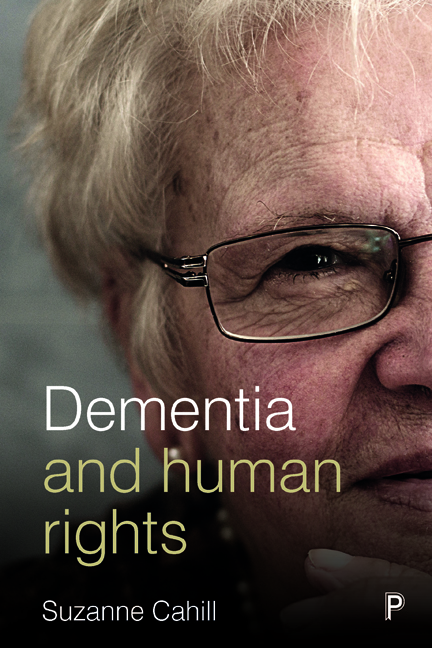one - An introduction to human rights and dementia
Published online by Cambridge University Press: 22 April 2022
Summary
Introduction
“The rights and needs of persons with dementia have been given low priority in the national and global agenda. In particular, with the progression of the disease, as their autonomy decreases, persons with dementia tend to be isolated, excluded and subject to abuse and violence”, so said Ms Rosa Kornfeld-Matte, UN Independent Expert on the Enjoyment of All Human Rights by Older People, on the opening day of the first Ministerial Conference on Global Action against Dementia held in Geneva in March 2015.
Ms Kornfeld-Matte went on to say how it was critical to tackle dementia through a human rights-based perspective because people with dementia are ‘rights holders’, and because states and other stakeholders are ‘duty bearers’. According to her, policies, legislation, regulations, institutions and budgets relating to dementia should all be embedded in a system of rights and obligations. She concluded this powerful statement with the following provocative appeal:
I call on all States and other stakeholders to adopt a human rights-based approach when addressing dementia. Dementia is a public health issue, but also a human rights concern. Persons with dementia should be able to enjoy their rights and fundamental freedoms in any circumstances. Their dignity, beliefs, needs and privacy must be respected at all stages of the disease. (Rosa Kornfeld-Matte, 2015)
Later during the same conference, two personal appeals to have their human rights respected were made by young people: Kate Swaffer, an Australian nurse, author, co-founder, Chair and CEO of Dementia Alliance International (DAI), and Chair of Alzheimer's Australia Dementia Advisory Group, who was first diagnosed with dementia at the age of 49, and Mike Ellenbogen, an American IT executive, who first presented with symptoms of dementia at the age of 39, and a decade later was finally diagnosed.
In an audience of some 450 people representing 89 countries around the world, both Kate and Mike discussed the many challenges including discriminatory practices they have encountered as a direct result of having dementia. These include: their efforts to obtain a diagnosis, to live a life like others and ‘not be shut away’, to continue to drive, work, manage their finances, access services and be treated with dignity and respect.
- Type
- Chapter
- Information
- Dementia and Human Rights , pp. 3 - 26Publisher: Bristol University PressPrint publication year: 2018



